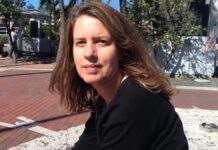The Church of GSKology
Facing a sexual abuse lawsuit, the archdiocese of St Paul and Minneapolis made a big deal of putting an independent panel in place to investigate. They put the Reverend Reginald Whitt in charge of appointing the panel and receiving its reports on behalf of the archdiocese. Rev. Whitt told priests and deacons that the task force may review specific files to determine whether the policies of the archdiocese concerning clergy sexual misconduct were properly followed. But, he wrote, “Access to these files will be within my control, and limited only to what is necessary for the task force.” This sounds terribly like the approach Sir Andrew Witty is attempting to put in place for GSK, AbbVie and the rest of the branded pharmaceutical industry vis-a-vis abuses, including child abuse committed in their name. They are asserting their right to spin their version of what it is you put in your body even though this clashes fundamentally with your right to know what you are putting in your body.
The Politics of Healing
Some things are floating around in my mind to try and make sense of. A big part of it is the connection of coercive/biopsychiatry to both race and gender politics. This is connected in my mind to the politics of healing in a larger sense than the singular healing any person might seek through therapy or personal search for wellness. It is a healing that is throughout the individual and society.
A Great Strategy Meeting is a Meeting of Minds
Conferences, trainings and seminars can play an important role in changing the culture of a community. As Margaret Mead said: “Never doubt that a small group of thoughtful, committed citizens can change the world. Indeed, it is the only thing that ever has.” The work is formidable but the results… man it is worth it!
Bogus Journal Articles Distract From the Real Problem in Academic Medicine
The buzz in academic publishing right now is the story about how several hundred open access journals accepted a fake research paper. Of much more concern is that there are top-tier medical journals which have published clinical trials, that were read by thousands of people, that influenced clinical decisions, that we now know were bogus, but have never been retracted.
An Essay on Finnish Open Dialogue: A Five-Year Follow-Up
It has been five years since I traveled to Western Lapland in Finland to film my documentary “Open Dialogue” on their Open Dialogue Project—the program, as I stated in the film, presently getting the best long-term statistical results in the world for the treatment of first-episode psychosis. My film came out four years ago, and since then I have been screening it around the world, giving lectures about Open Dialogue and my experience in Finland, participating in regular conferences and Q&A sessions about it, receiving daily emails, Facebook messages, blog and Youtube comments about it (as it’s now been free on Youtube for a year), and keeping in regular contact with some of the folks who work there. But I haven’t shared many of my updated opinions in writing, so I wish to do so now.
A Blood Test for Schizophrenia with 83% Accuracy?
An NBC online News article dated October 15, 2010, carried the noteworthy title New blood test may help detect schizophrenia. The article was written by Natasha Allen, a freelance medical journalist. The gist of the article is that there is a new blood test called VeriPsych which "researchers say" is 83% accurate in discriminating people who are "schizophrenic" from people who are not.
MIA Continuing Education: Help Us Get The Word Out
With great regularity, I receive emails from people—“patients,” family members, and mental health workers—who are frustrated by this fact: the psychiatrists they meet, and the larger psychiatric community, are simply not aware of research that questions the merits of psychiatric medications. Many providers, for instance, do not know of Martin Harrow’s long-term study of schizophrenia outcomes. We at Mad in America started Mad in America Continuing Education to produce online courses that will fill in this knowledge gap. And now that we have our first courses up, we need your help.
How Effective are Neuroleptic Drugs?
Robert Whitaker has raised questions about the problems with long term exposure to antipsychotic drugs but recent research raises questions about their efficacy in the short run.
The End of Rethinking Psychiatry?
Here in Portland I have been involved with a group called Rethinking Psychiatry, an organization that is working to critically examine the modern mental health system and to promote alternative options for helping people in emotional distress. This group works out of the Unitarian Church here, the largest one on the West Coast. Sadly, I just heard news that the Unitarian Church no longer wants Rethinking Psychiatry to be affiliated with them and is effectively asking them to leave.
When There’s No Place Like Home….
The most difficult decision I have had to make as a clinician has been to send a person into a locked psychiatric unit for up to 72 hours. The emotional impact affects the individual who is going to be placed on the 72-hour hold, and their family. The emotions that are involved in the process of observing the person, collecting information, and finally making the life-altering decision are powerful and long-lasting for the person making the decision as well. That is, if they are compassionate and involved, and fully aware of the consequences.
Transmuting Historical Trauma
I believe that my surges from the unconscious (what some might call “psychotic episodes”) contain an inner wisdom and force that has a tremendous capacity to encourage the healing of intergenerational trauma. This essay explores an energy that is especially potent and accessible during these periods of unconscious spelunking.
Overtreatment, Bereavement, and Antidepressants
A recent paper argues that prescribing antidepressants shortly after the death of a loved one is problematic . . . and a few days later, a Harvard academic publicly suggests prescribing antidepressants FOR bereavement. Wait, what?
Middle School Invasion: When the Pharmaceutical Companies Come to Town
On January 7, 2016 my newly 13-year-old son (he helped me fashion the title for this blog!) brought home two permission slips from the middle school where he is currently (hopefully) making his way through the 7th grade. One of the slips was for a class trip to the Bronx Zoo. Okay, fine. However, the other asked me to give my okay for him to participate in a “Signs of Suicide” (SOS) curriculum and the perhaps-too-honestly-named ‘Brief Screening for Adolescent Depression’ (BSAD) that accompanies it. (Does no one else see the perverse humor in a depression screener that seems to actually be encouraging those screened to “be sad”?)
The End of Psychiatry
People are very confused about what psychiatry is. Psychiatry is a bit confused. Collapsing psychiatry into neurology would be clearer. If you want an evaluation to understand possible medical causes of your problem go to the nerve doctor. If you want to know if there is a pill for you, go to the nerve doctor. If you want to understand your experience as a human and the nature of your suffering, leave medicine out of it.
Depression and Suicide in the Elderly
In a few days, I will turn 65. Aside from asking myself, “Where did the time go?" I am reminded that my becoming a senior citizen is a part of a greater phenomenon--the aging of the baby boomer generation. While much attention has been focused on the rise of dementia and Alzheimer’s that will accompany the graying of America, there exists another equally significant hazard of growing old in our culture - the increasing number of older Americans who are attempting suicide - and succeeding. Given that I have battled depression my entire life, this trend takes on personal significance for me.
Falling Through the Cracks
I am an award-winning singer/songwriter with a number one record to my credit. I also owned several small businesses and founded a 501c3 non-profit for women's health. I ate healthy, swam and cycled every day and had a very active lifestyle. This was before benzos came into my life.
Letters From the Front Lines
Dear Bob:
Saw a young man recently, early 30s, who wanted help withdrawing from benzodiazepines.
He had been on escalating doses of Xanax for two years. The...
Crash Course in Urban Shamanism
Shamans are the magician spirit healers in tribal, non-technological societies around the world. Anthropologists use the word “shamanism,” from the Tungus people of Siberia, to mean the commonalities between different traditions. Shamans find their calling through a life-threatening initiatory illness or crisis, go into visioning and trance to connect to other realities, shapeshift out of their regular identity to identify with animals, spirits, and even illnesses, and return to the ordinary world to share skills of healing and creativity. Living at the edge of society and defying conventional norms, conduct, and even gender, shamans are respected as a powerful community link to the divine.
A New Model of Service
What should the relational and emotional stance of the therapist be? Just who exactly is the therapist in relationship to the person coming to see the therapist? What is the therapist's job, exactly? What should the therapist's disposition be toward the person sitting across from them? What kinds of assumptions or presumed power come with the label therapist and are those assumptions harmful or helpful?
Not Seen
I am The Invisible Woman. A woman with a nice enough bag, a calm demeanor, and well-put-together clothes (they are not “odd,” they attract no attention). You might see me walking my dog near where I live, smiling at my neighbors, making small talk. People make all sorts of comments to me about the crazies. It never occurs to them that I might be among this so-called population.
It Gets Better: A Portrait of Poly Psychopharmacology
The “It gets better” collection will be a series of republished posts on my website, Beyond Meds, from when I was gravely ill from the psych drug withdrawal process and the following protracted psychiatric drug withdrawal syndrome. So many folks out there are now going through the heinous process of finding their way through psychiatric drug withdrawal syndrome and other iatrogenic injuries from psychiatric drugging. While many find their way through after weeks or months, for others it can take years to really get out of the deep disability and darkness it creates. I’m going to start reposting my personal pieces from those difficult days, so that people can see how far I’ve come and find hope that they too might come out of that darkness and find some peace and joy again.
What Does an 800 lb Gorilla in the Room Say at an ADHD Conference? ...
This blog is a little different than my normal. I want to tell you about an inspiring ADHD conference I took part in last week and a band of 800 lb. gorillas who gently shared the obvious with adults just wanting the facts when it comes to ADHD. First, if you didn't know, October was ADHD awareness month. Yes, according to www.ADHDawarenessmonth.org, a website sponsored by Shire Pharmaceuticals (the philanthropic makers of Adderall and Vyvanse) and supported by a large collection of non-profit groups (e.g., CHADD) conveniently supported by the profits of many other ADHD-focused pharmaceutical companies, October was the month to celebrate awareness of ADHD. October was the month to learn more about the ADHD stimulant drugs so often prescribed. Move along folks… nothing to see…no conflict of interest here.
Faith Lost
I came through integrative medicine as a stepping-stone to holistic care. I learned about supplements and herbs that could be added on to medications or used on their own to change mood and enhance wellness. I practiced in this way for a couple of years, prescribing and strategically augmenting, before understanding that true personalized, lifestyle medicine obviates the need for medication. It gets to the root. I no longer wanted to enhance psychotropics; I wanted to eliminate them.
Raising Our Voices at TED 2013
At the end of my TED Talk one of the conference’s co-hosts came onto the stage and asked me, with a respectful interest, whether I still hear voices. For a split second I hesitated, wondering whether to play it down with an airy “oh, not all that much now.” Instead I opted for the truth: “All the time,” I said cheerfully, “In fact I heard them while I did the talk – they were reminding me what to say!”
Over Our Dead Bodies
On Monday night, Irish television screened a documentary covering the events leading to the self inflicted death of Shane Clancy & the other young man he killed. In the documentary, psychiatrist Professor Patricia Casey is quoted as saying that she does not believe the SSRI Shane was taking played any role in the killings and that in her opinion they were caused by an undiagnosed psychiatric illness. Professor Casey did not meet Shane when he was alive. She has never spoken to his family, does not have access to his medical records or family history and has not spoken to his doctor.












